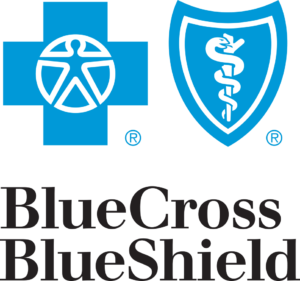
Navigating the world of health insurance coverage for substance abuse treatment can be a complex and overwhelming process. Many individuals seeking help for addiction wonder whether their Blue Cross Blue Shield (BCBS) insurance will cover their stay in a substance abuse treatment center. In this article, we’ll explore the key factors that determine coverage, the types of treatment services typically covered, and how individuals can maximize their benefits for substance abuse treatment.
Understanding Blue Cross Blue Shield:
Blue Cross Blue Shield is a federation of independent health insurance companies that collectively provide coverage to millions of Americans. While BCBS plans share common features, specific coverage details can vary based on the state and plan chosen. It’s crucial for individuals to review their policy documents or contact their insurance provider to understand the specifics of their coverage.
Key Factors Influencing Coverage:
Plan Type:
BCBS offers a variety of plans, including Health Maintenance Organization (HMO), Preferred Provider Organization (PPO), and Exclusive Provider Organization (EPO), each with different coverage structures.
PPO plans generally offer more flexibility in choosing healthcare providers, including substance abuse treatment centers, both in-network and out-of-network.
Network Providers:
Insurance plans often have a network of healthcare providers with whom they have negotiated lower rates. In-network providers typically result in lower out-of-pocket costs for the insured individual.
Checking whether a substance abuse treatment center is in-network is essential for maximizing coverage.
Medical Necessity:
Insurance coverage for substance abuse treatment is often contingent on medical necessity. This means that the treatment must be deemed necessary for the individual’s well-being.
Documentation from healthcare professionals supporting the need for substance abuse treatment may be required for coverage approval.
Preauthorization and Utilization Review:
Some plans may require preauthorization before entering a substance abuse treatment program. This involves obtaining approval from the insurance company before receiving certain services.
Utilization review may also be conducted during treatment to assess the ongoing need for services.
Types of Treatment Services Covered:
Inpatient Treatment:
Inpatient rehabilitation programs involve residing at a treatment facility for an extended period, typically ranging from 28 to 90 days.
Coverage may include room and board, medical supervision, therapy sessions, and other necessary services.
Outpatient Treatment:
Outpatient programs allow individuals to receive treatment while living at home. Coverage may include individual and group therapy sessions, counseling, and medication management.
Medication-Assisted Treatment (MAT):
Some BCBS plans cover medications, such as methadone, buprenorphine, or naltrexone, used in conjunction with counseling and therapy to treat substance use disorders.
Detoxification Services:
Coverage may extend to medically supervised detoxification services to manage withdrawal symptoms safely.
Maximizing Coverage:
Verify In-Network Providers:
Before seeking treatment, verify that the chosen substance abuse treatment center is in-network to minimize out-of-pocket expenses.
Understand Coverage Limits:
Review policy documents to understand coverage limits, including the number of covered days for inpatient treatment and any specific treatment modalities covered.
Communicate with Insurance Provider:
Contact BCBS directly to clarify coverage details, including preauthorization requirements and any documentation needed for approval.
Appeal if Necessary:
If a claim is denied, individuals have the right to appeal the decision. Provide any necessary supporting documentation and work with healthcare providers to advocate for coverage.
Conclusion:
While Blue Cross Blue Shield insurance can provide valuable coverage for substance abuse treatment, it’s essential for individuals to be proactive in understanding their specific policy details. By familiarizing themselves with the key factors influencing coverage, exploring the types of treatment services covered, and taking steps to maximize their benefits, individuals can better navigate the path to recovery with the support of their insurance coverage.

